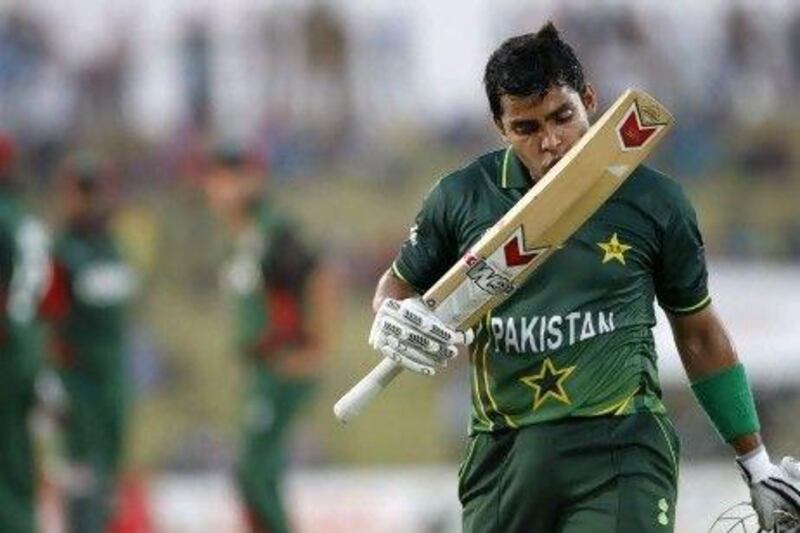If you want to understand why Umar Akmal continues to be on the periphery as far as Pakistan's Test team is concerned, you are unlikely to get your answer from scorecards.
In his penultimate series in the West Indies, he scored 33 and 47 in Guyana and 56 and 30 in St Kitts. A few months later, in Bulawayo, he made 15 in the only chance he got against Zimbabwe. He has not been seen in whites since.
Some of the reasons for his exclusion are undoubtedly related to off-the-field incidents. After a brilliant debut in New Zealand, Umar blotted his copybook by allegedly threatening to withdraw from the team if Kamran, his brother, was dropped for the Hobart game.
It was the sort of posturing that a seasoned veteran might have got away with.
For a young stripling to try it was asking for trouble.
With Kamran continuously ignored – for reasons of integrity, although no one comes out and says that openly – Adnan, the middle brother, is the only one who is part of the Test scenario right now.
But the treatment of Umar, who revealed plentiful gifts during that magnificent debut hundred against Shane Bond and company, raises many uncomfortable questions about the way young talent is handled in this part of the world.
Vinod Kambli was 23 when he played his last Test for India. A taste for the good life was his undoing, and several coaches just washed their hands of him rather than try too hard to get him back on the wagon.
At the same age, Ricky Ponting was getting into bar brawls and sporting black eyes. Australia's selectors disciplined him, but never lost sight of him. With the right people at his back, he went on to become one of the game's all-time greats.
Umar's performance levels have unquestionably dipped since that debut series. But if you look at the numbers, they are hardly those of a chancer who got lucky and was then found out. In his first four Tests, Umar scored a century and four 50s. In 12 games since, he managed just two half-centuries.
But it wasn't just failure alone that tested the management's patience. Time after time, he got starts and squandered them. The keen eye and repertoire of strokes that had so impressed on debut kept leading him down blind alleys, as one promising innings after another was cut short by an impetuous stroke.
But he is hardly alone in taking time to find his bearings at the highest level. Some of the players who have had the greatest impact on cricket's history in the new millennium endured similarly rocky roads early on. Michael Vaughan, who ended nearly two decades of Australian Ashes domination, averaged just 31.15 after 16 Tests.
Michael Clarke, another who was thrown in at the deep end without exceptionally impressively first-class numbers, started as Umar did, with a superb century in Bangalore (2004). In his first home Test, and fifth overall, he did it again. But by the time he had played 16 Tests, the average had plummeted to a modest 40.79.
Sachin Tendulkar scored three memorable hundreds [Old Trafford, Sydney and Perth] in his first 16 Tests, but he too struggled to find consistency. Where Umar's aggregate after 16 games is 1003 runs, Tendulkar's tally was just 956.
You only need to glance at Umar's strike rate [65.98] to realise where the problem lies.
He scores at a faster clip than Chris Gayle and Matthew Hayden. The shot selection that allowed both those men to pile up huge scores has eluded him though.
The solution is not banishment. As long as he remains, by a distance, the most gifted Pakistani batsman of his generation, what he needs is a guiding hand on the shoulder rather than a kick up the backside.
Follow us
[ @SprtNationalUAE ]





